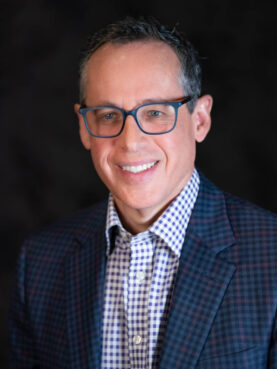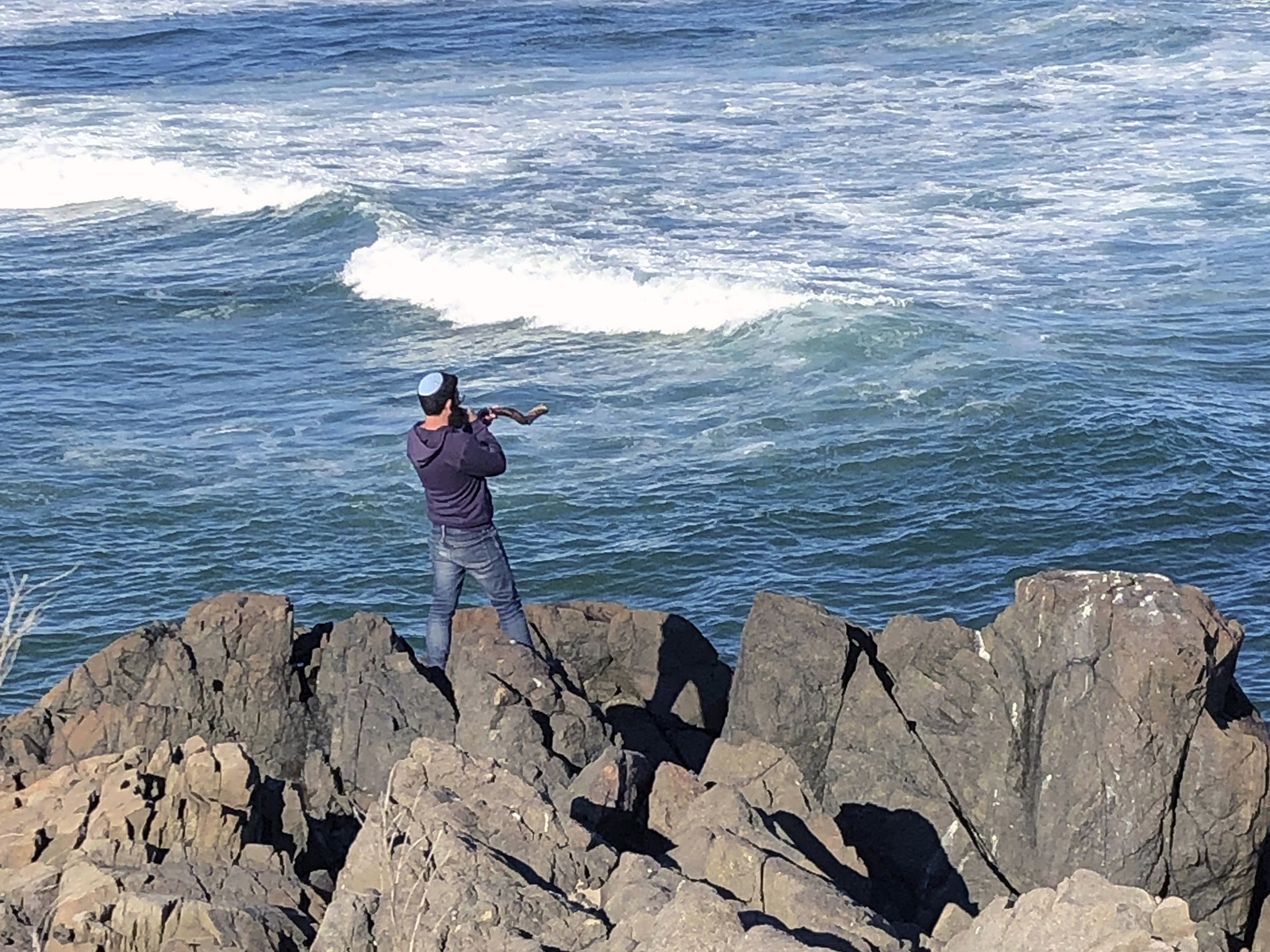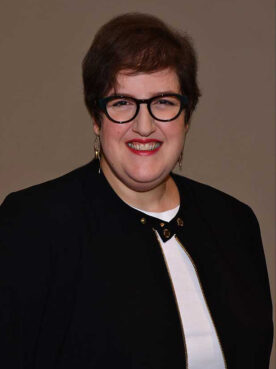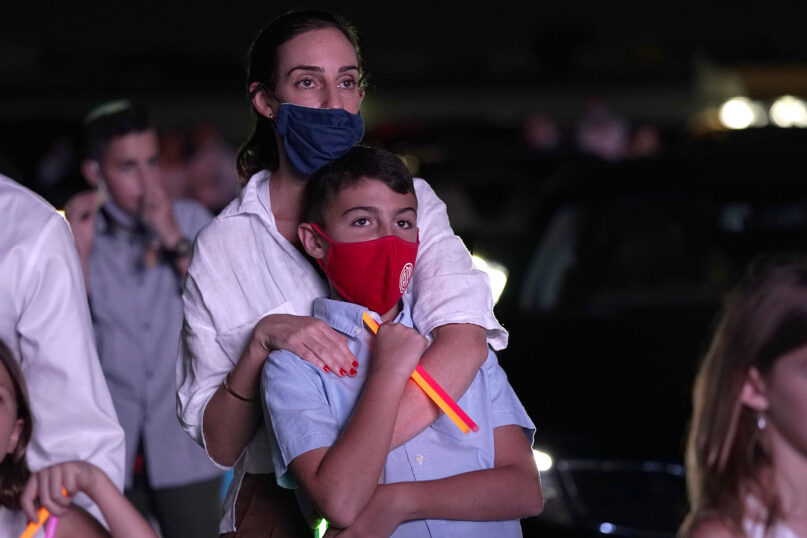(RNS) — Two weeks ago, Rabbi Steven Engel and his staff at Congregation of Reform Judaism in Orlando, Florida, had a solid pandemic safety plan for the best-attended services of the year: Rosh Hashana, the Jewish New Year, and Yom Kippur, the Day of Atonement.
The plan called for:
- Doubling the number of services to allow the congregation’s 1,500 members to distance from one another.
- Members only in attendance.
- Advance reservations required.
- Outdoor-only services for unvaccinated children.
- No members on the bimah, or podium, except the rabbi and cantor.
Now his synagogue is back to watching the numbers and will revise as needed.
A flood of new COVID-19 cases, fueled by the highly contagious delta variant, is putting increased pressure on synagogue leaders nationwide, but particularly in the South, to scale back plans formulated earlier this summer with the expectation that the pandemic was ebbing.

Rabbi Steve Engel. Photo courtesy of Congregation of Reform Judaism
Parts of the South have been especially hard hit as the variant overwhelms hospitals’ intensive care units. Florida has the country’s worst hospitalization rate. This week, the state reported a seven-day rolling average of 21,706 new daily cases.
“Two weeks ago, if you asked me, I would have said it’s going in the right direction,” said Engel, whose Congregation of Reform Judaism is the largest synagogue in central Florida. “Then boom. It’s like someone put up a wall in front of us.”
Rosh Hashana, which begins on the eve of Sept. 6, marks the beginning of the Days of Awe, the holiest period of the Jewish calendar, a time in which Jews reflect and reconcile with people they may have wronged. The period ends with the Day of Atonement on Sept. 16.
In that 10-day stretch, synagogues are typically packed to capacity. Last year, there were no indoor services due to the coronavirus, and Jews made due with various online or outdoor substitutes.
RELATED: As Jewish High Holidays approach, we must reform our plans again
Many were looking forward to a resumption of services this year, and while most synagogues were planning on reduced-capacity services, even those are looking more tentative now.
An informal survey of Conservative synagogue leaders conducted last week by the North American Association of Synagogue Executives showed that 70% said they do not plan on returning to full capacity.
Some 38% of those leaders said they would require proof of vaccination for anyone planning to attend.
In written responses to the online survey, many wrote notes such as “Pivoting is the key,” “plans are subject to change,” and “This is exhausting.”

A man blows a shofar to celebrate the end of Rosh Hashana on the Marginal Way, Sept. 20, 2020, in Ogunquit, Maine. (AP Photo/Pat Eaton-Robb)
American Jews have among the highest rates of vaccinations, according to a Public Religion Research Institute June poll. But the delta variant has raised new questions about how safe vaccinated people are. It’s clear vaccinated people living around large unvaccinated populations may be more susceptible to breakthrough infections.
“We’re interconnected,” said Engel, the Florida rabbi. “It’s a global world.”
On Tuesday (Aug. 17), Gov. Greg Abbott of Texas, who is vaccinated but opposes mask and vaccine mandates, was one of those breakthrough cases. His state has averaged more than 15,000 new cases a day lately, and hospitals are filling up to or near capacity.
Rabbi Eleanor Steinman of Temple Beth Shalom in Austin, a Reform congregation of some 600 families, said the synagogue is reserving the option of going online-only at a moment’s notice.

Rabbi Eleanor Steinman. Photo courtesy of Temple Beth Shalom
For now it will double the number of services, so fewer people will attend each one. The choir, which has been practicing for months, has prerecorded all of its musical sections and they will be screened on TV monitors at the appropriate times in the service. Masks will be required of all.
“We’re trying to make decisions based on our values,” Steinman said. “Here we have two competing values: the health and safety of our people and the desire and need to get together and pray. We’re grateful to technology that will allow us to gather in ways that feel safe.”
Rabbis expressed their disappointment with the slowly sinking reality that the coronavirus is not going away and elements of last year’s emergency measures may be here to stay. Both Steinman and Engel said few people have been attending in person since their congregations opened up.
“You’re supposed to go into the High Holidays motivated and inspired and uplifted,” Engel said. “This is a very heavy weight placed on us. Just when we thought things were turning around. But we Jews reinvent ourselves.”
RELATED: Millions skipped church during pandemic. Will they return?





